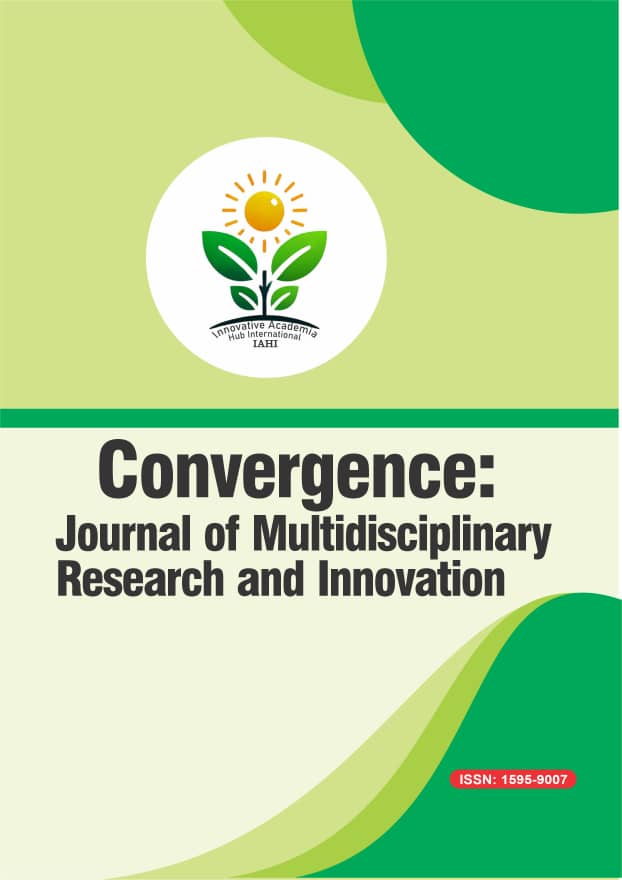
Published 2025-02-06
Keywords
- Motorcycle accidents,
- public health,
- Rider demographics,
- Road safety interventions
Abstract
Commercial motorcycle riders’ involvement in road traffic accidents has increasingly become a public health concern. The study aimed at unveiling the prevalence, causes and socio-demographic characteristics of the commercial motorcyclists capable of influencing motorcycle related accidents. The study population was 38,128 commercial motorcycle riders in Benue State involving six (6) Local Government Areas of the State. The study utilized a descriptive survey design and 412 commercial motorcycle riders (CMRs) as respondents were recruited. A self-constructed and validated questionnaire tagged - Commercial Motorcyclists’ Behavioral Indexes Questionnaire (CMBIQ) was utilized for data collection. The cluster sampling technique was adopted using a multi-stage approach. Descriptive statistics, Student independent t-test and ANOVA statistical tools were used for data analysis. Significant influence was declared when p-value was <0.05. Key findings of the study were: Prevalence of motorcycle related road traffic accidents (RTAs) among CMRs in Benue State was 75.2% and the commonest cause (category) of the accidents was 37.1% due to individual human error. CMRs below the age of 30 years (<20 years - x̅ = 3.51, σ = 0.56, p<0.05; 20 - 29 years - x̅ = 2.61, σ = 0.86, p<0.05), no formal education (x̅ = 3.69, σ = 0.47, p<0.05) and only Primary education (x̅ = 2.97, σ = 0.78, p<0.05) as the highest level of educational attainment, daily income of less than ₦7,000 (< ₦4,000 - x̅ = 3.24, σ = 0.72, p<0.05; ₦4,000 - ₦7,000 - x̅ = 2.81, σ = 0.88, p<0.05) and CMRs without alternative employment (x̅ = 3.22, σ = 0.73, p<0.05) were observed to have significant influence on RTAs in Benue State. None (0%) of the 412 (100%) CMRs studied, received any formal counselling geared towards RTAs prevention. In conclusion, socio-demographic characteristics of CMRs studied had high influence on RTAs and CMRs were not exposed to accident-prevention targeted counselling. An active public health policy ensuring persona-socio counselling might be a panacea in reducing the scourge. Being the first study in Benue State to unveil the prevalence of RTAs among CMRs and the necessity for persona-socio counseling for prevention reveals its novelty.
